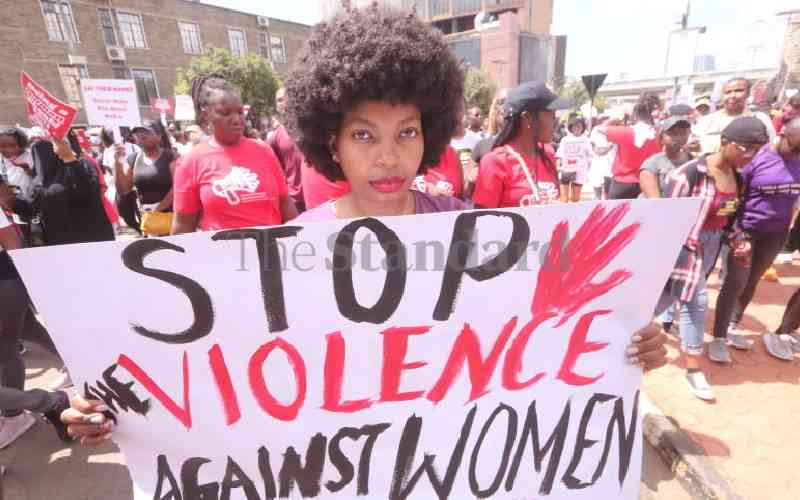
On 5 September, Rebecca Cheptegei, a 33 year old Ugandan athlete who trained in Kenya, was set on fire after being doused in petrol by her ex-boyfriend, suffering burns to 80 per cent of her body. Rebecca lingered on in what must have been unimaginable pain for three days before her injuries took her life at a hospital in Eldoret.
In 2021, 25-year-old record-breaking runner Agnes Tirop was stabbed to death, allegedly by her husband. That same year, another aspiring athlete, 27-year-old Edith Muthoni was murdered, allegedly by her husband. Barely six months later, 28-year-old Kenyan-Bahraini athlete Damaris Mutua was strangled by her alleged lover.
These heinous acts of femicide made world headlines because the young women involved were professional athletes. Most others don't even make the local paper.
In a disquieting pattern, no one has thus far been sentenced or found legally liable for these women's deaths.
Over three years since the brutal murder of Ms Tirop, her husband and alleged murderer, Ibrahim Rotich, is out on bail while the hearing of the case drags on. Dickson Marangach, Rebecca Cheptegei murderer, escaped accountability when he died from his self-inflicted injuries.
The rate at which femicides are rising unchecked in Kenya is contemptible and unacceptable. Lives of Kenyan women are being treated as though they are disposable and worthless.
The high rates of femicide with zero accountability clearly show a problem with our social norms and justice system. In July, several female bodies (some reports indicate six, others nine but the suspect has confessed to 42 murders) were discovered in a quarry in Nairobi.
The suspect has since escaped police custody. The lives of these murdered women, mostly unidentified, join the archives of other murdered Kenyan women, and a police and justice system that seems incapable of protecting them or holding their murderers to account.
With figures tallying a startlingly high number of cases of violence against women and girls with each passing year, Kenya has become a crime scene in which women's lives are constantly in danger. According to the investigative platforms Africa Uncensored and Africa Data Hub, over 500 Kenyan women were murdered between 2017 and 2024. Varied reports indicate that 31 of these deaths took place in the first month of 2024 alone.
Kenya urgently needs to address the rising incidences of femicide.
At a national level, a bold and necessary move would be to recognise femicide as a critical issue of national security under Article 238 of the Constitution. By categorising femicide within this framework, the government can unlock significant resources, both financial and human, across the security and judicial sectors.
This would accelerate the investigation and prosecution of femicide cases, and send a powerful message: Women's lives and safety are precious and integral to Kenya's national security.
At a regional level, Kenya is a signatory to the Maputo Protocol; Article 4 lays out the measures State Parties need to take to protect women's right to life, integrity and security. These include punishment of perpetrators of violence. It is time for Kenya to go back to the drawing board and seek to implement the Protocol within its borders.
It is time for government institutions and organisations that work for the betterment of women's lives to come together and join the call for a new Optional Protocol to the Convention on the Elimination of All Forms of Discrimination Against Women to end violence against women and girls and demand better for Kenyan women and girls. We owe it to the dead - and the dying.
These are practical pathways for Kenya to start to address this endemic problem and, frankly, women, girls and Kenyan society as a whole cannot abide - or survive - further inaction.
 The Standard Group Plc is a multi-media organization with investments in media
platforms spanning newspaper print
operations, television, radio broadcasting, digital and online services. The
Standard Group is recognized as a
leading multi-media house in Kenya with a key influence in matters of national and
international interest.
The Standard Group Plc is a multi-media organization with investments in media
platforms spanning newspaper print
operations, television, radio broadcasting, digital and online services. The
Standard Group is recognized as a
leading multi-media house in Kenya with a key influence in matters of national and
international interest.
